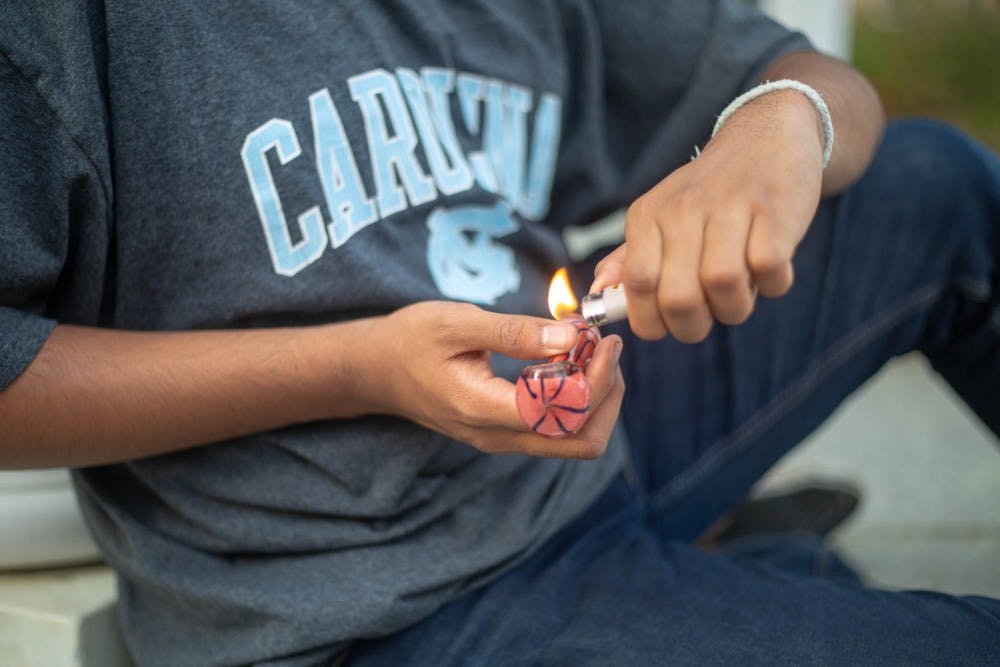Marijuana is the most commonly used illicit substance in America, according to the National Institute on Drug Abuse. As a medical marijuana bill makes its way through the General Assembly, more research may need to fully understand the impact of use of marijuana on college students.
Based on an anonymous Facebook poll of the UNC class of 2021 that had 168 respondents, 57.1 percent of students said they use marijuana. Out of these students, 15.5 percent reported they used marijuana every day, 14.3 percent said they used it every week, 13.7 percent said they used it every month and 56.5 percent said they used it rarely.
Nisha Gottfredson, an assistant professor at the UNC Gillings School of Global Public Health, said if marijuana is used by students who are feeling socially isolated, unhealthy habits for use could arise.
“Substance use actually tends to occur more often for people who are not socially isolated, they’re more likely to drink or use substances in social situations, but the people who are more socially isolated are those that are less likely to use substances on average,” she said. “But when they do, they develop more problematic habits for use, like they’re more likely to become dependent on the substances they’re using for self-medication instead of seeking mental health services and things like that.”
According to data from 152 colleges and universities, the Center for Collegiate Mental Health at Pennsylvania State University found in their 2018 annual report that 61.8 percent of students utilizing mental health services on campus experienced anxiety, 49.8 percent experienced depression and 54.4 percent experienced social anxiety, difficulty in interpersonal functioning or social isolation.
While marijuana use can have dangerous consequences for a growing portion of the college population, Gottfredson said it causes less of a public health problem than alcohol does.
“There is some research that shows that marijuana use actually decreases aggression and decreases dating violence and stuff like that,” she said. “... There’s some evidence that when the brain is still developing in adolescents, marijuana use has been shown to decrease IQ.”
There is no consensus on when the brain fully matures, but researchers at the Dana Foundation, a private organization with a focus on brain research, found the mechanisms for motor control, cognitive control and executive, or behavioral, function are fully mature by the age of 25. However, parts of the frontal lobe, which impact emotions, aren’t done developing until much later.
Gottfredson said legalization of marijuana comes with both positives and negatives. She said there may be a greater risk of overdose because of the increased strength of some legal marijuana and edibles, but legalization would result in more precise doses and less underground sales that leave the buyer with no idea what is in the product.



